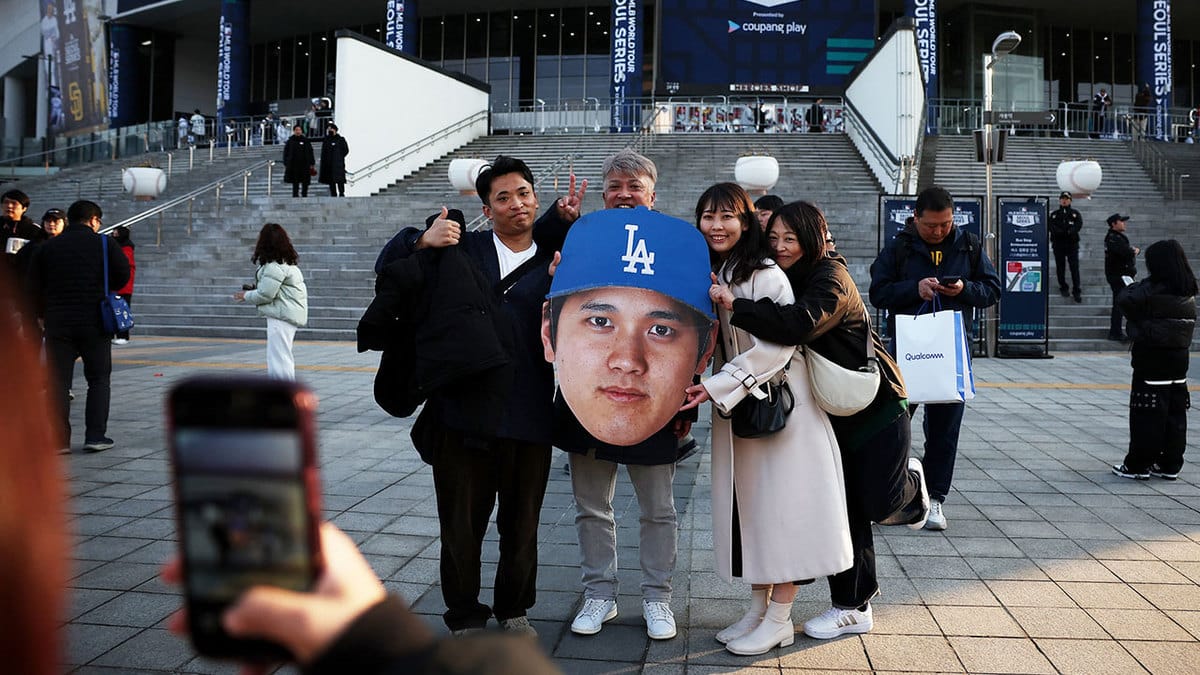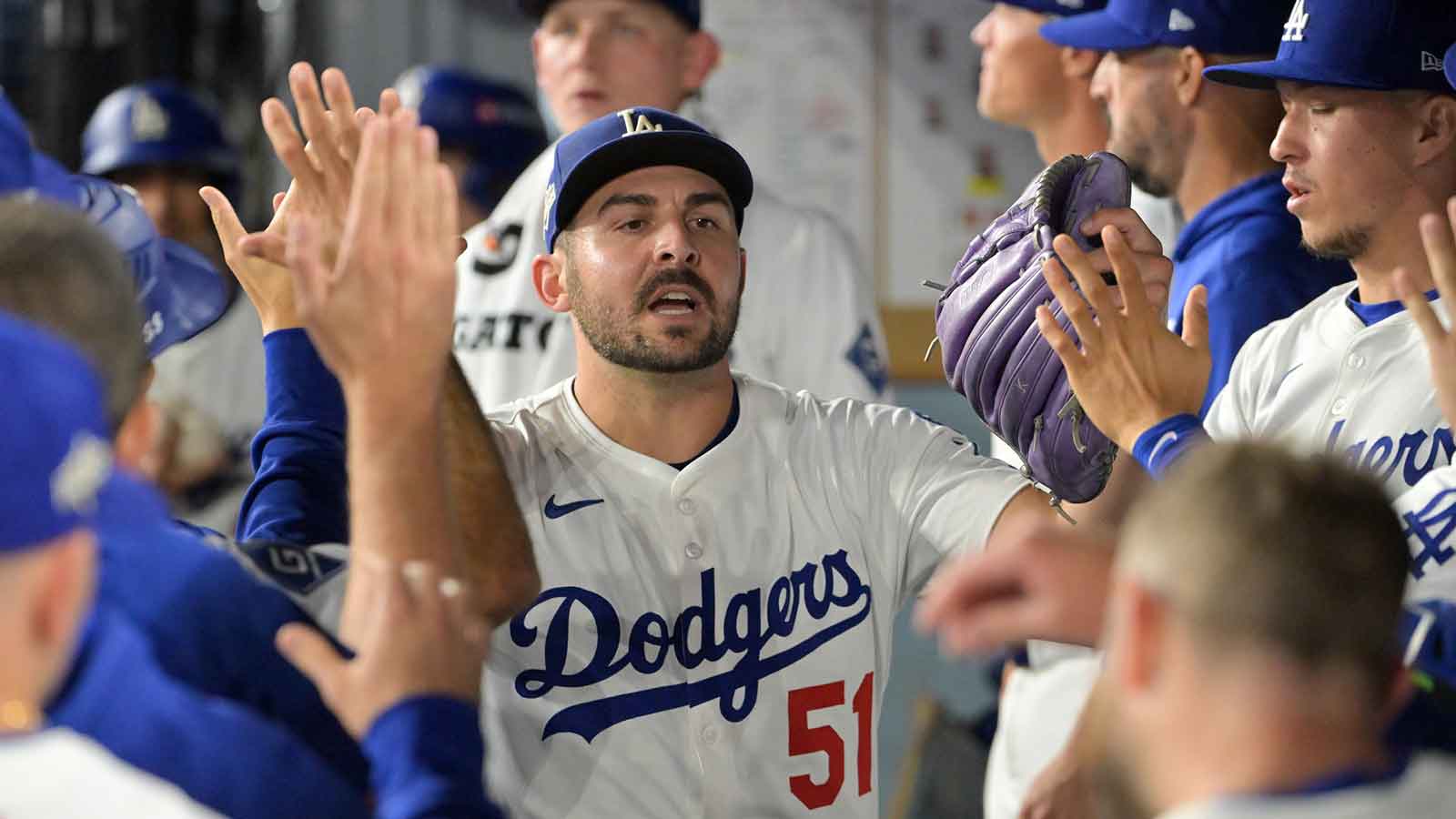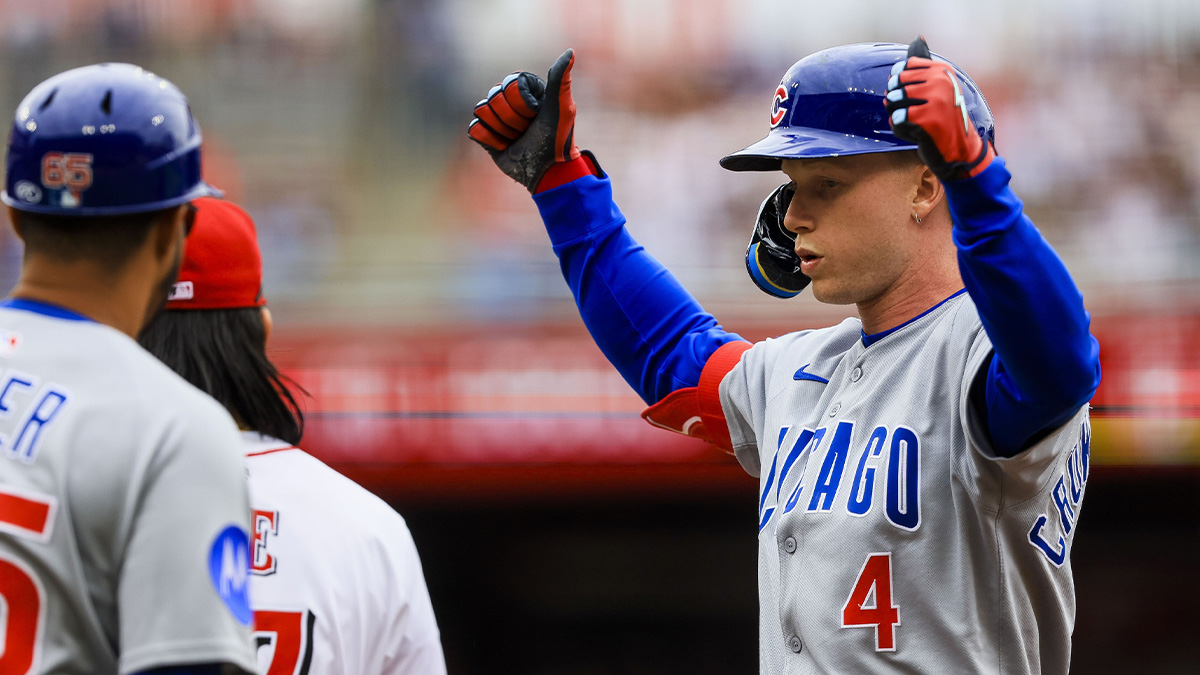Earlier in the week, the Los Angeles Dodgers and San Diego Padres set off on a roughly 15-and-a-half-hour flight from the U.S. to Seoul, South Korea. Both teams took a break from their spring training schedules to travel over 6,000 miles for the MLB Seoul Series, which will be considered the Opening Day of the 2024 season, at least for the Dodgers and Padres until the other teams begin on March 28.
The Dodgers and Padres are meeting in a two-game series, playing at the Gocheok Sky Dome in Seoul. There were also four exhibitions included as part of the 2024 MLB World Tour. In Game 1, the Dodgers beat their NL West rival 5-2. The two teams will meet in one more game before heading back to the states to finish up their spring training.
This won't be the only international series of the 2024 season. The MLB has three more planned, with the Houston Astros and Colorado Rockies playing in the Mexico City Series from April 27-28, followed by the London Series featuring the New York Mets and Philadelphia Phillies on June 8-9.
The MLB has already gone international during spring training earlier in the month when the Boston Red Sox faced the Tampa Bay Rays in the Dominican Republic Series. That makes the Seoul Series seem very odd.
These Japanese legends have never faced each other … until now! #SeoulSeries pic.twitter.com/CXvWTJNrAU
— MLB (@MLB) March 20, 2024
The MLB Seoul Series shouldn't be considered Opening Day

It's understandable what the league is trying to do with what they've labeled the MLB World Tour. They're trying to promote their game to a worldwide audience, much like the other big leagues in the U.S. are doing with the NBA and NFL. But how did MLB grow their audience on their home field with the Seoul Series?
Bringing a sport to another country makes for extremely intriguing television. Presenting baseball in front of a completely new audience in a new setting brings a different element to the game being played. Fans from other countries may not react the same way that fans of the U.S. would, and that could be because of cultural differences or just an overall appreciation for seeing the game live for the very first time, in their country no less. Watching baseball being played in a different country is especially interesting due to the game taking place in a different venue, where field dimensions aren't the same, unlike in other sports where they are similar.
But couldn't this have all been done in a spring training series like it was with the Dominican Republic Series earlier in March? Or why not wait until later in the season like the MLB is doing with the London Series? Having Opening Day — if you really want to call it that — in a country on the other side of the world nearly doesn't exactly promote growing the brand at all in the land it resides, where you could argue it needs it the most.
The MLB has been trying to grow their brand for decades now, attempting different strategies at embracing the youth and bringing excitement back to the game so that baseball can continue to thrive for the long term. That's why it's so puzzling to have a single two-game series played thousands of miles away be the official start to the season.
Sure, it might be an old school thought, but Opening Day should always be at home. But also, why have a two-game series played just 10 days before everyone else has their Opening Day? The Dodgers and Padres both come all the way back to Southern California to play three more games, have one off day, then open up their seasons on March 28 like everyone else, just with a two game jump start.
Dodgers' fans miss out on Shohei Ohtani's debut

You also have to consider that while yes, Shohei Ohtani is becoming a transcending star, and was most likely heavily considered when making this series (even if he wasn't a Dodger yet), you did his home fans in the Los Angeles area and in the states overall no favors. This was, after all, Ohtani's first official regular season game in Dodger blue.
Dodgers fans also missed the first appearance of newly acquired pitcher Tyler Glasnow, who made his first start for the team against the Padres in the Seoul Series.
Each game for the Seoul Series takes place at 6:05 am ET and 3:05 am PT. Unless you're a diehard baseball fan, you're likely not waking up for those games, especially for those on the west coast. Plus, you have to consider, these games are being played through the middle of the week, when kids, unless they're on spring break, are in school.
If the series would have taken place later in the season, the time difference would have been the same. But by putting the series in the summer you at least eliminate kids being in school factor of it, not to mention allowing more people to potentially make summer plans to travel to the game. That's when MLB would be hitting full stride as well, in the deep of the summer.
The Seoul Series itself isn't a problem overall. Seeing things like Ha-Seong Kim cheered by his home crowd was wonderful, as was watching Ohtani face Yu Darvish for the first time. It's the timing of the series that is bothersome. Again, it's odd that two teams have to pack up and go thousands of miles away during the middle of their spring training to then transition into a two-game series that is labeled their first official series of the season to then transition right back to exhibition games days later.
Welcome home, Ha-Seong Kim ❤️@Padres | #SeoulSeries pic.twitter.com/pYcCYJTmoM
— MLB (@MLB) March 20, 2024
This is not even a real issue if it takes place on actual Opening Day, starting off the day with this series leading into the others. It still takes away from a traditional ceremonial Opening Day for the home team, but at least it doesn't disrupt spring training. This feels like it was more or less shoehorned in, causing a brief start to opening the season right before putting it on pause again.
The MLB Seoul Series is proof that the league has more work to do at home
As thoughtful as the MLB has been in trying to grow the game of baseball on an international level, situations like the Seoul Series are a stark reminder that more thought needs to be put into growing it at home. This series feels like a further alienation of fans, keeping them from being able to watch baseball, much like cable and now streaming services have done. Putting the Seoul Series more than a week before the 2024 Opening Day, hours before most people are awake on one coast while others are getting ready for work on another, only created another roadblock for fans to watch.




















